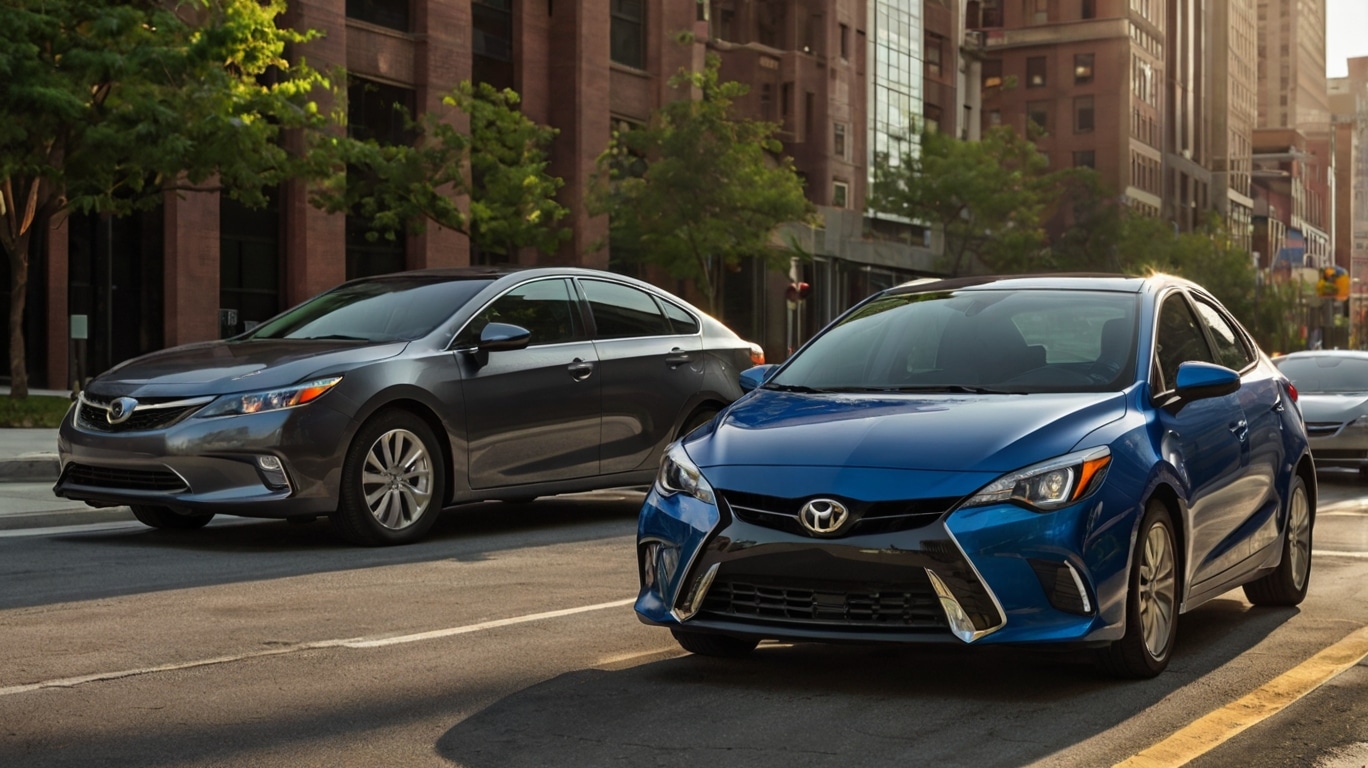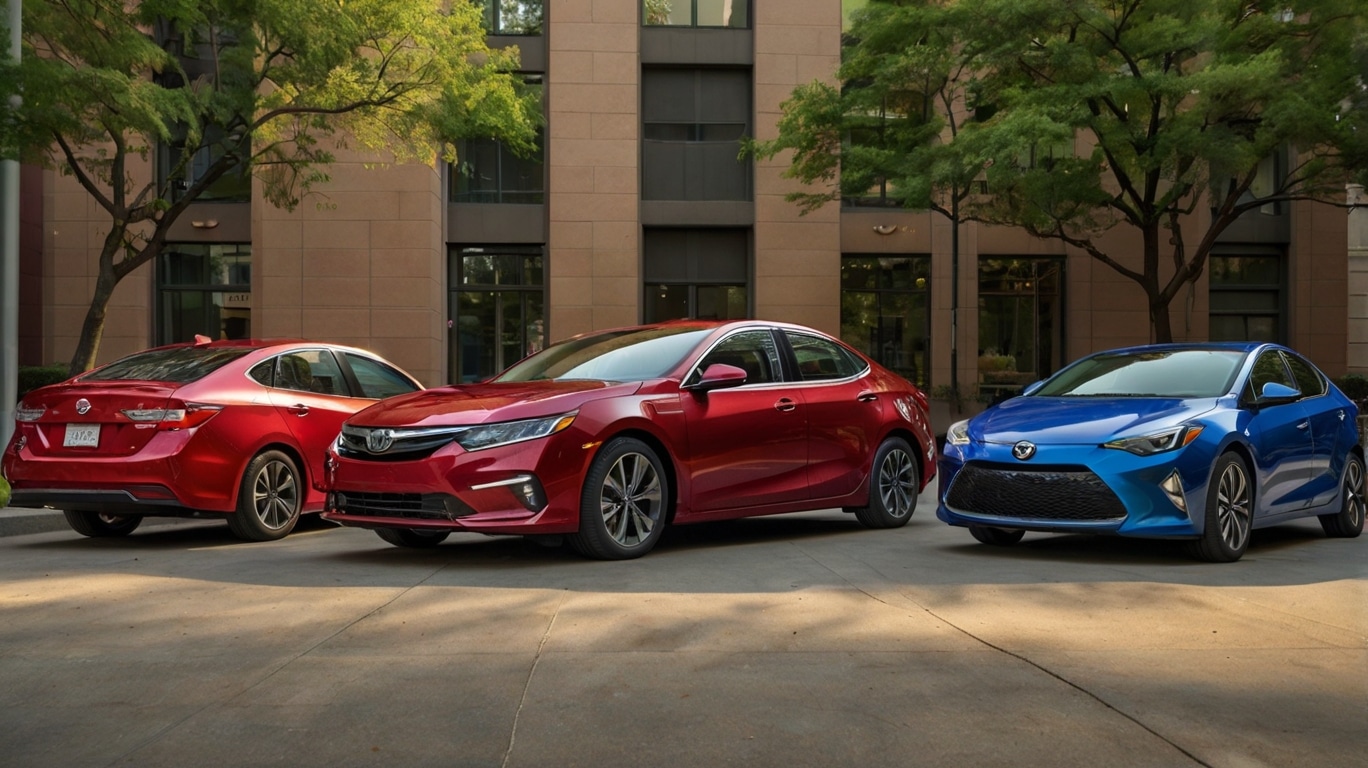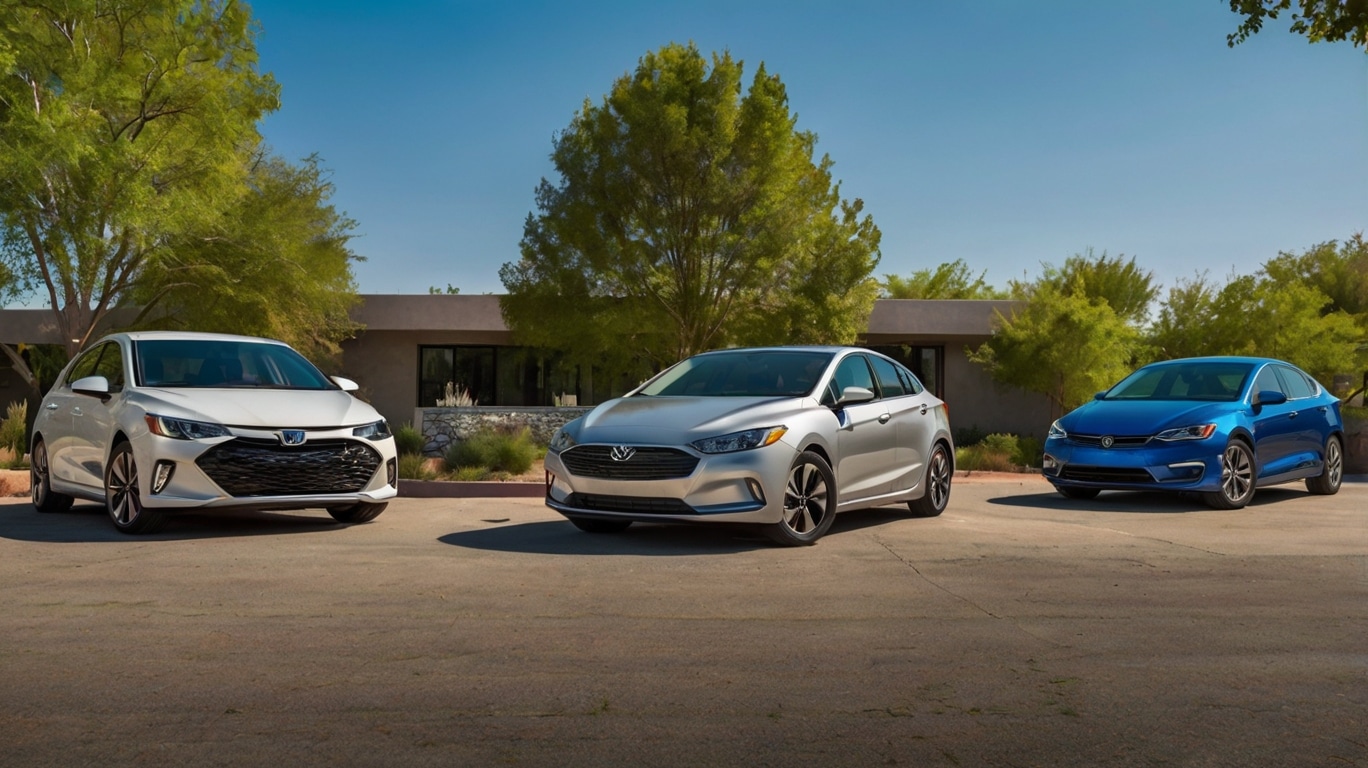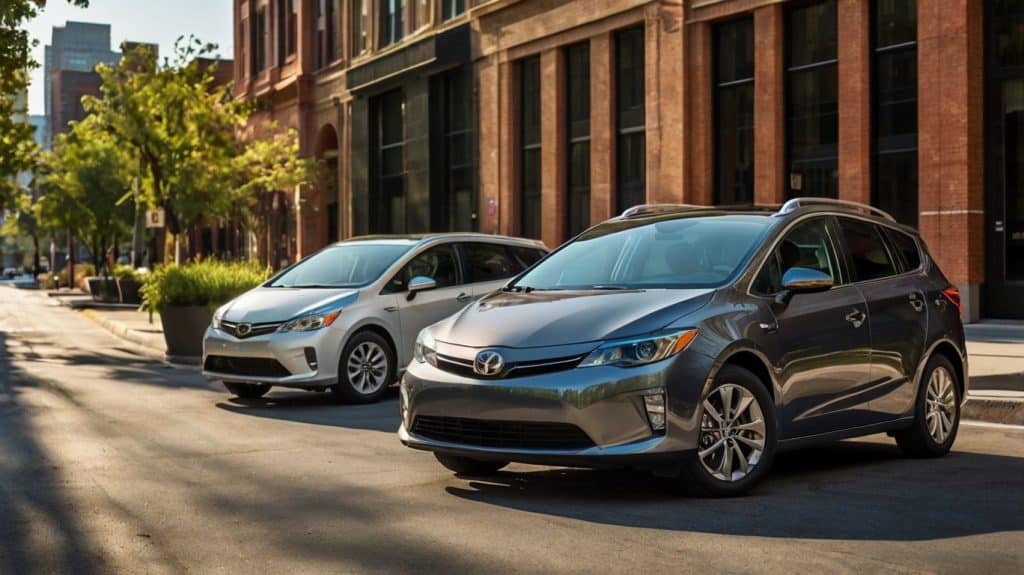Fuel-Efficient Cars in the USA: The Best Choices for 2024
Introduction
In an era where environmental awareness and fuel efficiency are becoming increasingly important, choosing a car that offers exceptional fuel economy is more crucial than ever. Fuel-efficient vehicles not only help reduce your carbon footprint but also save you money at the pump. For American consumers, the market is brimming with options that provide impressive mileage without compromising on performance or comfort. This comprehensive guide explores the top fuel-efficient cars available in the USA for 2024, providing insights into their features, benefits, and overall value.
1. Understanding Fuel Efficiency
What is Fuel Efficiency?
Fuel efficiency refers to how effectively a vehicle uses fuel to travel a certain distance. It is typically measured in miles per gallon (MPG) in the United States. Higher MPG ratings indicate better fuel efficiency, meaning the vehicle can travel further on a gallon of fuel.
Why is Fuel Efficiency Important?
- Cost Savings: Vehicles with higher fuel efficiency cost less to operate, as they require fewer refueling stops.
- Environmental Impact: Improved fuel efficiency reduces greenhouse gas emissions and pollutants, contributing to a cleaner environment.
- Energy Independence: Fuel-efficient cars help reduce reliance on fossil fuels, promoting energy sustainability.
2. Factors Affecting Fuel Efficiency

Several factors influence a vehicle’s fuel efficiency, including:
- Engine Size and Type: Smaller engines and hybrid powertrains generally offer better fuel economy.
- Driving Habits: Smooth driving with minimal acceleration and braking can enhance fuel efficiency.
- Vehicle Weight: Lighter vehicles tend to be more fuel-efficient than heavier ones.
- Aerodynamics: Cars with sleek, aerodynamic designs experience less air resistance, improving fuel efficiency.
3. Top Fuel-Efficient Cars for 2024
1. Toyota Prius
Overview: The Toyota Prius has long been a leader in fuel efficiency, and the 2024 model continues this tradition. Renowned for its hybrid technology, the Prius offers a perfect blend of performance and eco-friendliness.
Key Features:
- Fuel Economy: Up to 56 MPG combined.
- Powertrain: 1.8L 4-cylinder engine paired with an electric motor.
- Interior: Spacious cabin with high-quality materials and advanced technology.
- Safety: Toyota Safety Sense 2.0 suite, including adaptive cruise control and lane-keeping assist.
Why It’s a Top Choice: The Prius stands out for its exceptional fuel efficiency and reliability. Its hybrid system delivers impressive mileage without sacrificing driving comfort or handling.
2. Honda Insight
Overview: The Honda Insight is another standout in the hybrid segment, offering a refined driving experience and excellent fuel economy. The 2024 model boasts a sleek design and modern features.
Key Features:
- Fuel Economy: Up to 55 MPG combined.
- Powertrain: 1.5L 4-cylinder engine with an electric motor.
- Interior: Upscale cabin with a user-friendly infotainment system and ample passenger space.
- Safety: Honda Sensing suite of safety features, including collision mitigation braking and road departure mitigation.
Why It’s a Top Choice: The Insight combines outstanding fuel efficiency with a comfortable ride and a well-appointed interior, making it a great option for eco-conscious drivers.
3. Toyota Corolla Hybrid

Overview: The Toyota Corolla Hybrid offers the reliability and practicality of the Corolla nameplate with the added benefit of hybrid technology. The 2024 model delivers impressive fuel efficiency in a compact, stylish package.
Key Features:
- Fuel Economy: Up to 52 MPG combined.
- Powertrain: 1.8L 4-cylinder engine and an electric motor.
- Interior: Modern design with comfortable seating and advanced tech features.
- Safety: Toyota Safety Sense 2.0, including adaptive cruise control and automatic high beams.
Why It’s a Top Choice: The Corolla Hybrid provides a practical and fuel-efficient alternative to traditional sedans, offering both performance and value.
4. Hyundai Ioniq Hybrid
Overview: The Hyundai Ioniq Hybrid is a versatile and stylish hybrid that competes strongly in the fuel-efficiency category. The 2024 model combines a futuristic design with advanced hybrid technology.
Key Features:
- Fuel Economy: Up to 59 MPG combined.
- Powertrain: 1.6L 4-cylinder engine and an electric motor.
- Interior: Spacious cabin with a focus on technology and comfort.
- Safety: Advanced safety features, including forward collision-avoidance and lane-keeping assist.
Why It’s a Top Choice: The Ioniq Hybrid excels in fuel efficiency while offering a range of modern features and a sleek design, making it a top pick for tech-savvy drivers.
5. Ford Maverick Hybrid
Overview: The Ford Maverick Hybrid introduces a new level of fuel efficiency to the compact truck segment. The 2024 model combines utility with excellent fuel economy.
Key Features:
- Fuel Economy: Up to 42 MPG combined.
- Powertrain: 2.5L 4-cylinder engine with an electric motor.
- Interior: Functional and versatile cabin with a focus on practicality.
- Safety: Co-Pilot360 suite, including automatic emergency braking and blind-spot monitoring.
Why It’s a Top Choice: The Maverick Hybrid offers a unique combination of truck utility and hybrid efficiency, appealing to drivers who need both cargo space and excellent fuel economy.
6. Lexus ES 300h
Overview: The Lexus ES 300h provides a luxurious and fuel-efficient option in the midsize sedan segment. The 2024 model combines elegance with hybrid efficiency.
Key Features:
- Fuel Economy: Up to 44 MPG combined.
- Powertrain: 2.5L 4-cylinder engine and an electric motor.
- Interior: High-quality materials and advanced technology, including a large infotainment screen.
- Safety: Lexus Safety System+ 2.5, featuring adaptive cruise control and lane-tracing assist.
Why It’s a Top Choice: The ES 300h delivers luxury and comfort while maintaining excellent fuel efficiency, making it an attractive option for those seeking a premium hybrid vehicle.
7. Kia Niro Hybrid
Overview: The Kia Niro Hybrid offers a stylish and practical alternative in the hybrid crossover segment. The 2024 model provides excellent fuel efficiency in a compact, versatile package.
Key Features:
- Fuel Economy: Up to 53 MPG combined.
- Powertrain: 1.6L 4-cylinder engine and an electric motor.
- Interior: Comfortable and spacious cabin with modern technology.
- Safety: Advanced safety features, including forward collision-avoidance and driver attention warning.
Why It’s a Top Choice: The Niro Hybrid combines impressive fuel efficiency with a versatile crossover design, making it a great choice for families and commuters alike.
8. BMW i4
Overview: The BMW i4 is an electric vehicle that delivers impressive range and performance. The 2024 model represents BMW’s commitment to combining luxury with electric efficiency.
Key Features:
- Range: Up to 300 miles on a full charge.
- Powertrain: Electric motors with up to 536 horsepower in the M50 variant.
- Interior: High-end materials and advanced technology, including a large curved display.
- Safety: Comprehensive safety suite, including active driving assistant and parking assistant.
Why It’s a Top Choice: The i4 offers a combination of luxury, performance, and electric efficiency, making it a top choice for those seeking an upscale electric vehicle.
4. Comparing Fuel-Efficient Cars
When choosing a fuel-efficient car, it’s essential to consider factors beyond just MPG ratings. Here’s a comparison of key aspects of the top fuel-efficient cars mentioned:
| Model | Fuel Economy (MPG) | Powertrain | Interior Features | Safety Features |
|---|---|---|---|---|
| Toyota Prius | Up to 56 MPG combined | 1.8L 4-cylinder + electric motor | Spacious, high-quality materials | Toyota Safety Sense 2.0 |
| Honda Insight | Up to 55 MPG combined | 1.5L 4-cylinder + electric motor | Upscale cabin, user-friendly infotainment | Honda Sensing |
| Toyota Corolla Hybrid | Up to 52 MPG combined | 1.8L 4-cylinder + electric motor | Modern design, comfortable seating | Toyota Safety Sense 2.0 |
| Hyundai Ioniq Hybrid | Up to 59 MPG combined | 1.6L 4-cylinder + electric motor | Spacious, tech-focused interior | Advanced safety features |
| Ford Maverick Hybrid | Up to 42 MPG combined | 2.5L 4-cylinder + electric motor | Functional, versatile cabin | Co-Pilot360 suite |
| Lexus ES 300h | Up to 44 MPG combined | 2.5L 4-cylinder + electric motor | Luxurious materials, large infotainment screen | Lexus Safety System+ 2.5 |
| Kia Niro Hybrid | Up to 53 MPG combined | 1.6L 4-cylinder + electric motor | Comfortable, modern technology | Advanced safety features |
| BMW i4 | Up to 300 miles range | Electric motors | High-end materials, large curved display | Active driving assistant, parking assistant |
5. Conclusion
In 2024, American consumers have a wide range of fuel-efficient cars to choose from, each offering unique benefits and features. Whether you’re looking for a hybrid with exceptional fuel economy or an electric vehicle with impressive range, the options available today cater to various needs and preferences.
The Toyota Prius and Honda Insight remain top choices for their longstanding reputation for reliability and efficiency. Meanwhile, models like the Hyundai Ioniq Hybrid and Ford Maverick Hybrid provide a blend of modern features and high fuel efficiency. For those seeking luxury, the Lexus ES 300h and BMW i4 offer upscale experiences with excellent mileage.
When selecting a fuel-efficient car, consider factors such as your driving habits, vehicle needs, and budget. By making an informed choice, you can enjoy the benefits of reduced fuel costs and lower environmental impact, all while driving a vehicle that meets your lifestyle needs.
As technology advances and fuel efficiency continues to improve, the future looks promising for eco-conscious drivers. Embrace the shift towards greener automotive options a
6. Future Trends in Fuel-Efficient Vehicles
As we move further into the 2020s, the automotive industry continues to evolve, with several key trends shaping the future of fuel-efficient vehicles. Here’s a look at some of the most significant trends:
1. Advancements in Hybrid Technology
Hybrid vehicles have come a long way since their inception, and ongoing advancements promise even greater fuel efficiency. Future hybrid models will likely feature:
- Enhanced Battery Technology: Improvements in battery technology will increase the electric-only range and overall efficiency of hybrid systems.
- More Efficient Powertrains: Next-generation hybrids will incorporate more advanced powertrain designs, combining higher efficiency with better performance.
- Plug-in Hybrids: Plug-in hybrid electric vehicles (PHEVs) will become more prevalent, offering longer electric-only ranges and greater flexibility for drivers who want to maximize fuel efficiency.
2. Growth of Electric Vehicles (EVs)
Electric vehicles are set to play a significant role in the future of fuel efficiency. Key developments include:
- Extended Range: Advances in battery technology are leading to EVs with longer ranges, making them a viable option for more drivers.
- Faster Charging: Improvements in charging infrastructure and technology will reduce charging times and enhance convenience for EV owners.
- Affordable EVs: As technology advances and economies of scale improve, the cost of electric vehicles is expected to decrease, making them more accessible to a broader audience.
3. Integration of Artificial Intelligence and Smart Technologies
The integration of artificial intelligence (AI) and smart technologies in vehicles is expected to enhance fuel efficiency in several ways:
- Adaptive Driving Systems: AI-driven systems will optimize driving patterns for better fuel economy, such as adjusting driving behavior based on traffic conditions and route planning.
- Predictive Maintenance: Smart technologies will provide real-time diagnostics and predictive maintenance alerts, helping drivers address issues before they impact fuel efficiency.
4. Focus on Lightweight Materials
Reducing vehicle weight is a key factor in improving fuel efficiency. Future vehicles will increasingly incorporate:
- Advanced Materials: Use of lightweight materials such as carbon fiber and aluminum will reduce vehicle weight without compromising strength or safety.
- Streamlined Design: More aerodynamic designs will minimize drag and improve overall efficiency.
5. Development of Hydrogen Fuel Cell Vehicles
Hydrogen fuel cell technology is another promising avenue for achieving high fuel efficiency with minimal environmental impact:
- Zero Emissions: Hydrogen fuel cell vehicles emit only water vapor, making them a clean alternative to traditional fossil fuels.
- Fast Refueling: Hydrogen refueling is faster compared to electric vehicle charging, offering convenience for long-distance travel.
7. Government Incentives and Policies

Government policies and incentives play a crucial role in promoting fuel-efficient vehicles and encouraging consumers to make eco-friendly choices. Here’s how these factors are influencing the market:
1. Tax Credits and Rebates
Many governments offer tax credits and rebates for the purchase of fuel-efficient and electric vehicles. These incentives can significantly reduce the upfront cost of a vehicle and make it more affordable for consumers.
2. Emission Regulations
Strict emission regulations are pushing automakers to develop more fuel-efficient and low-emission vehicles. These regulations encourage the adoption of hybrid, electric, and hydrogen-powered vehicles.
3. Infrastructure Investments
Investment in charging infrastructure for electric and hybrid vehicles is critical for supporting their growth. Governments and private companies are working to expand charging networks, making it easier for drivers to charge their vehicles.
8. Consumer Considerations When Choosing Fuel-Efficient Cars
When selecting a fuel-efficient vehicle, it’s essential to consider various factors to ensure that you choose the right car for your needs. Here are some key considerations:
1. Driving Habits
Assess your driving habits and typical usage. If you mostly drive short distances or commute in city traffic, a hybrid or electric vehicle with good city mileage may be ideal. For long-distance driving, consider vehicles with a longer range or higher fuel efficiency on highways.
2. Vehicle Type and Size
Consider the type and size of the vehicle that best suits your needs. Whether you need a compact car, sedan, SUV, or truck, there are fuel-efficient options available in each category. Choose a vehicle that balances fuel efficiency with practicality and comfort.
3. Total Cost of Ownership
Evaluate the total cost of ownership, including the purchase price, fuel costs, maintenance, and potential tax incentives. A vehicle with higher fuel efficiency may offer long-term savings, but it’s essential to consider all factors to determine the best value.
4. Technology and Features
Look for modern technology and features that enhance convenience and driving experience. Features such as adaptive cruise control, lane-keeping assist, and smart infotainment systems can improve overall driving satisfaction.
5. Resale Value
Consider the resale value of the vehicle, as fuel-efficient cars often retain their value better than less efficient models. Research the vehicle’s projected depreciation and its reputation for reliability.
9. Conclusion
Fuel-efficient cars are an essential component of a sustainable and cost-effective future. As technology advances and consumer preferences shift, the market for fuel-efficient vehicles continues to expand, offering a diverse range of options to meet various needs and preferences.
From hybrids and electric vehicles to advanced diesel engines and hydrogen fuel cell technology, the options available in 2024 reflect the industry’s commitment to improving fuel efficiency and reducing environmental impact. By considering factors such as driving habits, vehicle type, and total cost of ownership, consumers can make informed decisions and enjoy the benefits of reduced fuel costs and lower emissions.
As we look ahead, ongoing developments in automotive technology, government policies, and consumer preferences will shape the future of fuel-efficient vehicles. Embrace these advancements and choose a vehicle that aligns with your values and lifestyle, contributing to a cleaner, more sustainable world.
Whether you opt for a time-tested hybrid like the Toyota Prius, a modern electric vehicle like the BMW i4, or a versatile crossover like the Kia Niro Hybrid, there’s a fuel-efficient car to suit every driver. Explore your options, test drive your favorites, and make a choice that ensures both performance and efficiency on the road.

